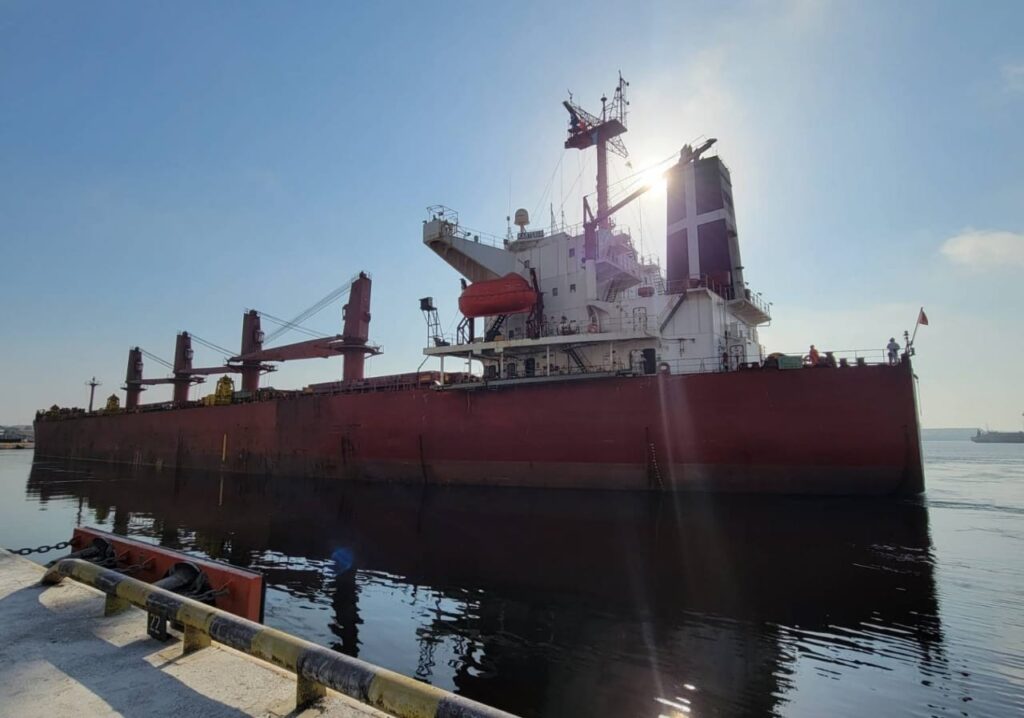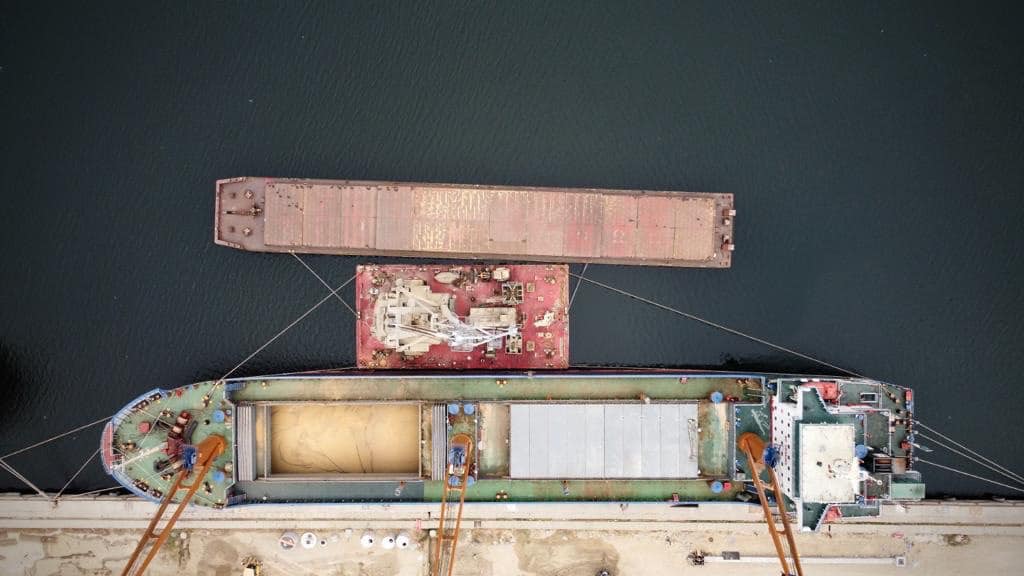In the Pivdennyi port the losses due to disrupted grain deliveries are laid on farmers

Due to the unstable operation of the Grain Agreement in the last six months of its existence, grain producers are at risk of incurring huge losses, because traders and terminals are trying to shift responsibility to them.
In the winter and spring, “Agroprosperis”, Sierentz Global Merchants, “Kernel” and several other traders bought large consignments of grain that they planned to export from the Port of Pivdennyi, Latifundist reports.
But the products got stuck in the port, because the representatives of Russia in the Joint Coordination Center in Istanbul deliberately did not let the ships go to the South.
A simple vessel also means additional costs for storage and transshipment of cargo. So, the traders are trying to shift the responsibility to the farmers, saying that they should pick up their grain from the terminals on their own and at their own expense.
In turn, the terminals “TIS-Zerno” and “TIS-Mindobriva” in Yuzhnoye do not release products without coordination with traders and complain that the grain is beginning to spoil.
Producers approach solving the problem in different ways: some are ready to take over the shipment, while others are preparing lawsuits in International Grain and Feed Trade Association.
Suppliers complain about the lack of adequate communication and specifics on the part of traders. Instead of solving the situation, many farmers were offered to simply “wait”. Producers estimate losses from $40 to $100 per ton, depending on selling price and logistics leverage.
The top manager of one of the companies said: the rupture of contracts and the transfer of costs to farmers is connected with the intransigence of the “TIS-Zerno” and “TIS-Mindobriva” terminals regarding invoicing for the storage of grain, which due to external circumstances cannot be sent from the port.
The speaker also said that other terminals in the Pivdennyi port are meeting and finding a compromise, adjusting prices for storage and shipment of grain.
According to Latifundist, the Minister of Agricultural Policy, Mykola Solskyi, has already been informed about the conflicts of farmers, terminals and traders. Also, specialized associations – UAC and UCAB – took up the task of resolving the conflict.
An employee of one of the “TIS” terminals told Latifundist that the termination of contracts by traders due to the closure of the “grain corridor” led to the accumulation of grain at the company’s terminals and its subsequent spoilage.
He also noted that the issue of transshipment and shipment rates is the prerogative of the owner, with whom owners of trading companies communicate.
According to the interlocutor of the publication, back in May, traders were warned that something should be done with the grain, because the terminal is not designed for its long-term storage.
Agrarians are not allowed to enter the terminal to check the quality of grain, but they were allegedly warned about storage terms, the employee claims. The terminal cannot return grain to farmers, because it has an agreement not with them, but with traders. Therefore, detailed instructions are expected from the latter.




